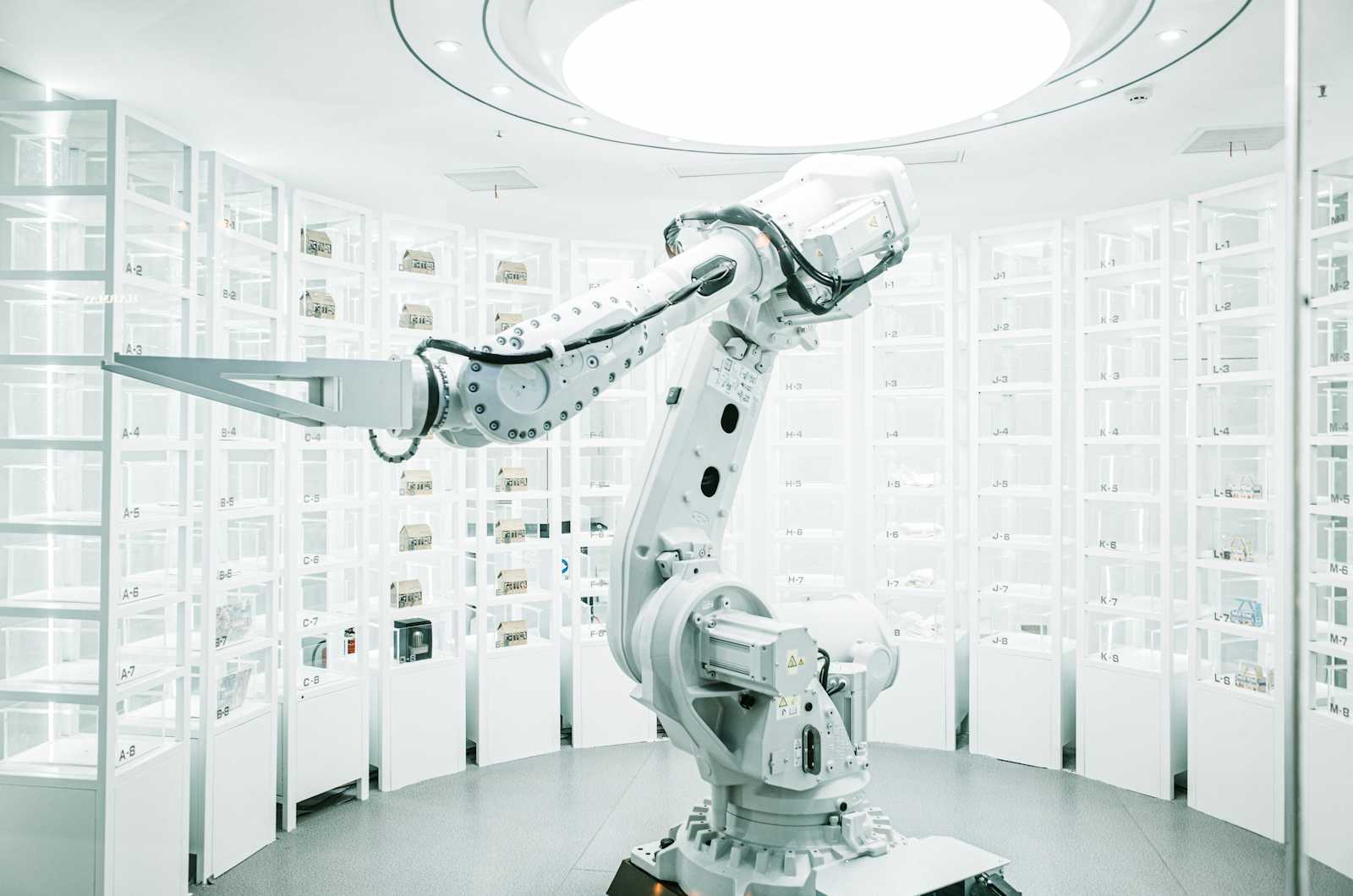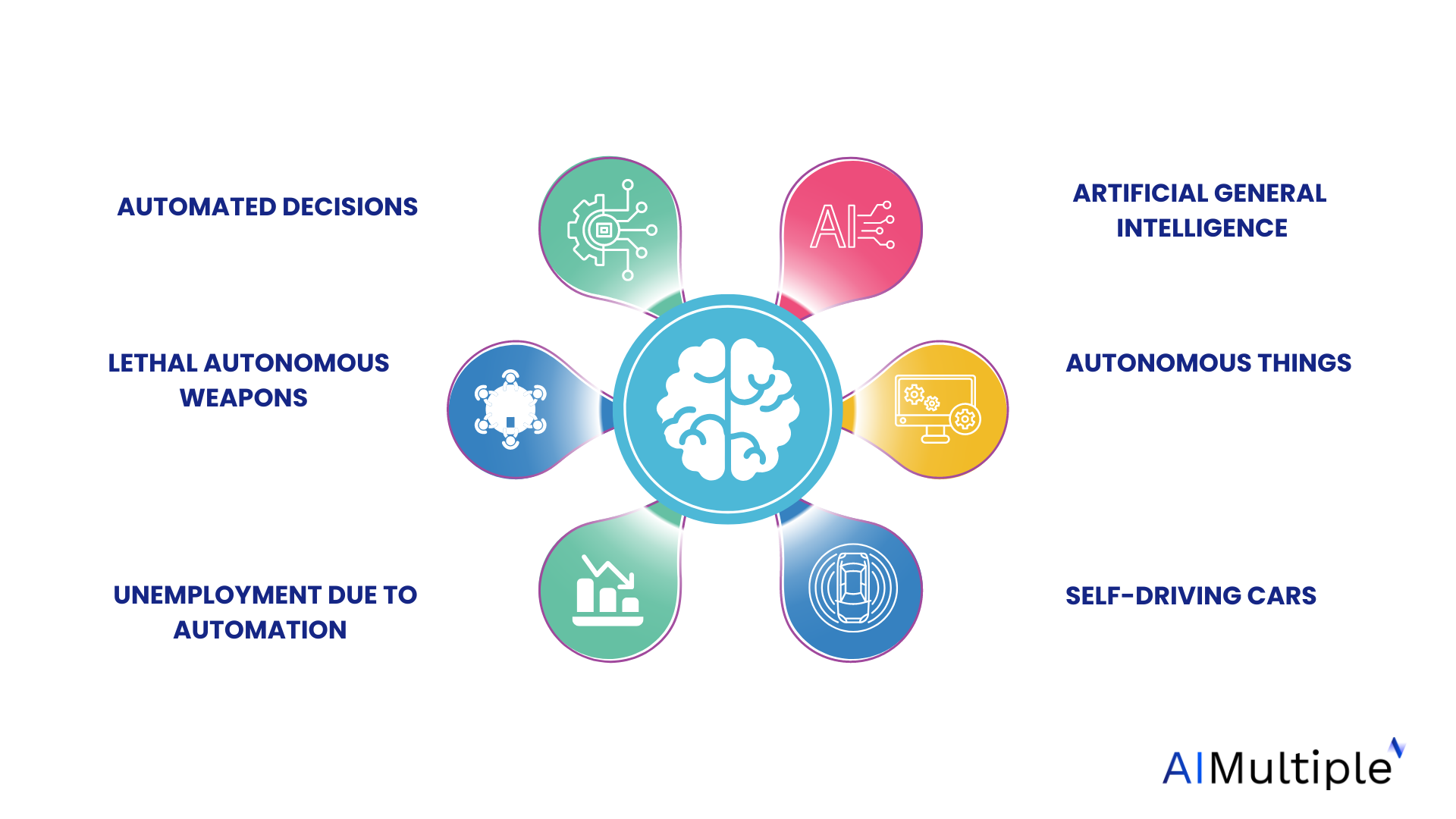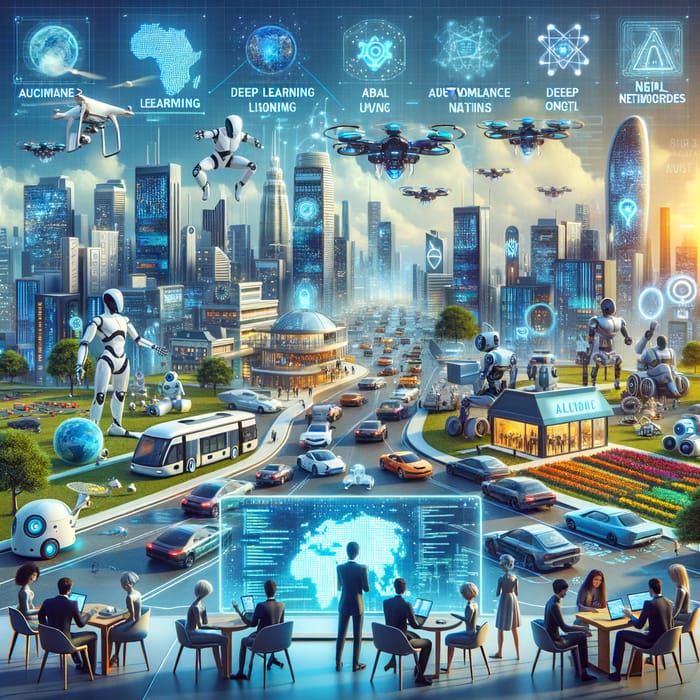Navigating the AI Revolution: How Artificial Intelligence is Shaping Our Future
 Gunjan Arora
Gunjan Arora
Artificial Intelligence (AI) has transcended the realms of science fiction and become a pivotal force in shaping the future. From self-driving cars to advanced healthcare diagnostics, AI is revolutionizing various industries and impacting our daily lives in ways we never imagined. As we stand on the cusp of this AI revolution, it's essential to understand its potential, challenges, and the profound changes it brings to our world.
The AI Landscape: An Overview
AI encompasses a range of technologies that enable machines to mimic human intelligence. This includes machine learning, natural language processing, computer vision, and robotics. These technologies work together to create systems that can learn, reason, and make decisions, often surpassing human capabilities in specific tasks.
Key Areas Where AI is Making an Impact
Healthcare: AI is transforming healthcare by providing more accurate diagnoses, personalized treatment plans, and even predicting disease outbreaks. For instance, AI algorithms can analyze medical images with remarkable precision, assisting radiologists in detecting conditions like cancer at an early stage.
![Types of AI in Healthcare: Explained [With Use Cases] | Health Tech Magazine](https://healthtechmagazine.net/sites/healthtechmagazine.net/files/styles/cdw_hero/public/articles/%5Bcdw_tech_site%3Afield_site_shortname%5D/202307/GettyImages-1388388759.jpg?itok=o656Laog)
Transportation: Self-driving cars are no longer a distant dream. Companies like Tesla, Waymo, and Uber are at the forefront of developing autonomous vehicles that promise to reduce accidents and improve traffic efficiency. AI also powers intelligent traffic management systems, reducing congestion and emissions.
Finance: AI-driven algorithms are revolutionizing the financial industry by enhancing fraud detection, automating trading, and providing personalized financial advice. Robo-advisors use AI to create tailored investment strategies for individuals, making wealth management accessible to a broader audience.

Retail: AI is reshaping the retail landscape by optimizing supply chains, personalizing shopping experiences, and improving customer service. AI-powered chatbots and virtual assistants provide real-time support, while recommendation engines analyze customer data to suggest products tailored to individual preferences.
Education: AI is transforming education by offering personalized learning experiences, automating administrative tasks, and providing virtual tutors. AI-driven platforms can adapt to students' learning styles and pace, ensuring a more effective and engaging educational experience.

The Promise and Challenges of AI
Benefits of AI
Efficiency and Productivity: AI can process vast amounts of data at incredible speeds, leading to increased efficiency and productivity across industries.
Innovation: AI fosters innovation by enabling the development of new products, services, and business models.
Enhanced Decision-Making: AI systems can analyze complex data sets, providing insights that help organizations make informed decisions.
Personalization: AI allows for the customization of products and services to meet individual needs, improving customer satisfaction.
Challenges of AI
Ethical Concerns: The use of AI raises ethical questions regarding privacy, bias, and accountability. Ensuring AI systems are fair and transparent is crucial.
Job Displacement: While AI creates new job opportunities, it also has the potential to displace certain jobs. Preparing the workforce for this transition is essential.
Security Risks: AI systems can be vulnerable to cyberattacks, posing risks to data privacy and security.
Regulation: Establishing regulations that balance innovation with safety and ethical considerations is a significant challenge.

The Future of AI: What to Expect

As AI continues to evolve, its impact will only grow. Here are some trends to watch:
Explainable AI: As AI systems become more complex, there's a growing need for them to be transparent and understandable. Explainable AI aims to make AI decision-making processes more interpretable for humans.
AI and IoT Integration: The Internet of Things (IoT) and AI are converging to create intelligent ecosystems. Smart homes, cities, and industries will leverage this integration for enhanced efficiency and automation.
AI in Creative Industries: AI is making inroads into creative fields like music, art, and literature. AI-generated content and tools are opening new avenues for creativity and collaboration.
AI for Social Good: AI has the potential to address global challenges such as climate change, poverty, and healthcare disparities. Initiatives focused on AI for social good are gaining momentum.
Conclusion
The AI revolution is here, and its influence is pervasive. While AI presents numerous opportunities, it also brings challenges that must be addressed to ensure its benefits are equitably distributed. By understanding and harnessing the power of AI, we can navigate this transformative era and shape a future that enhances human capabilities and well-being.
Whether you're an industry professional, a student, or a curious observer, staying informed about AI's advancements and implications is essential. Embrace the AI revolution, and let's shape a future where technology and humanity thrive together.
Subscribe to my newsletter
Read articles from Gunjan Arora directly inside your inbox. Subscribe to the newsletter, and don't miss out.
Written by

Gunjan Arora
Gunjan Arora
I’m a passionate web developer with a focus on frontend technologies. With expertise in React.js, HTML, CSS, and modern JavaScript frameworks, I build dynamic and user-centric web applications. I’m dedicated to following best practices in coding, performance optimization, and responsive design to create seamless and engaging user experiences. Always eager to learn and stay updated with industry trends, I share my knowledge through insightful articles and practical tips to help fellow developers excel in their craft. Let’s connect and explore the ever-evolving world of web development together!
